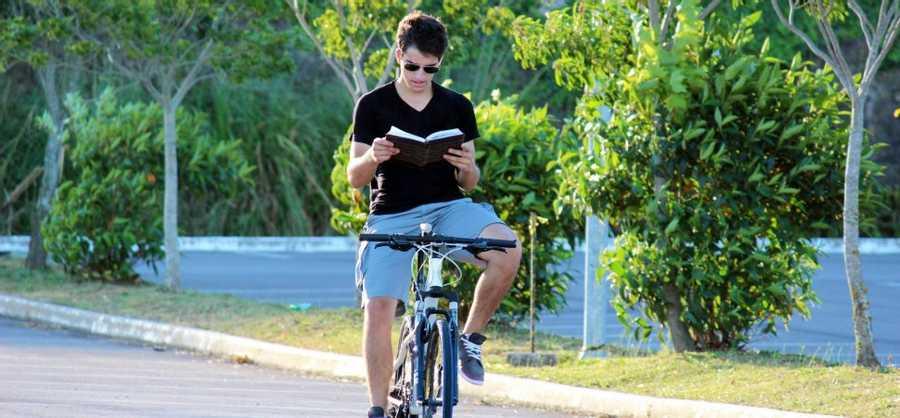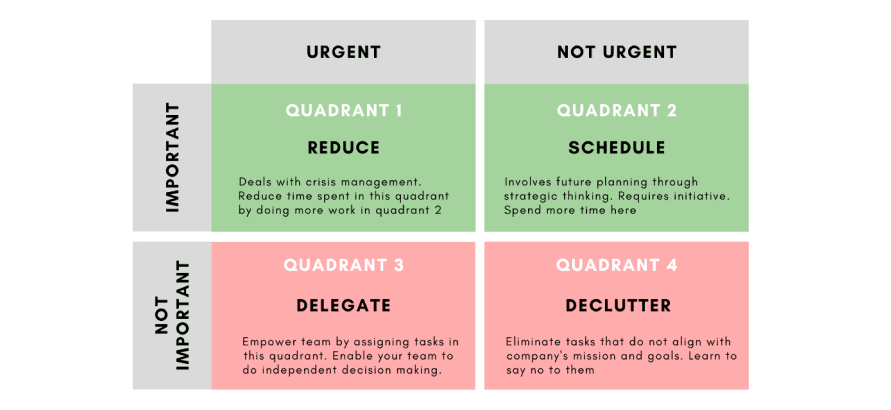Trim the fat
Multitasking and directing your energy to unimportant tasks and activities will overwhelm and prevent you from being productive.
Focus on your 3 to 5 most urgent tasks on your to-do-list. Focus on one task at a time.
At least one of your Most Important Tasks should be related to your goals.
4.19K
22.7K reads
CURATED FROM
IDEAS CURATED BY
The idea is part of this collection:
Learn more about productivity with this collection
How to manage workplace stress
How to prioritize and make better decisions
How to learn anything fast
Related collections
Similar ideas to Trim the fat
The Eisenhower Matrix
The Eisenhower Matrix productivity method lets you consider the urgency and importance of each task. This method breaks tasks into four quadrants and prescribes how we should deal with tasks in each block.
- Urgent and Important tasks: should be ...
Account for your hours: The Time Blocking method
The Time Blocking productivity method compels you to plan your day hour by hour, and prevent multitasking by batching similar tasks together.
- Make a to-do list for the day.
- Categorize hour tasks together in similar blocks.
- Esti...
Multitasking vs monotasking
Multitasking fractures your attention between multiple tasks at the same time; monotasking fully focuses on one task.
- Multitasking is less about being able to work on more tasks at the same time, and more about hoe we switch between different tasks while not giving o...
Read & Learn
20x Faster
without
deepstash
with
deepstash
with
deepstash
Personalized microlearning
—
100+ Learning Journeys
—
Access to 200,000+ ideas
—
Access to the mobile app
—
Unlimited idea saving
—
—
Unlimited history
—
—
Unlimited listening to ideas
—
—
Downloading & offline access
—
—
Supercharge your mind with one idea per day
Enter your email and spend 1 minute every day to learn something new.
I agree to receive email updates


